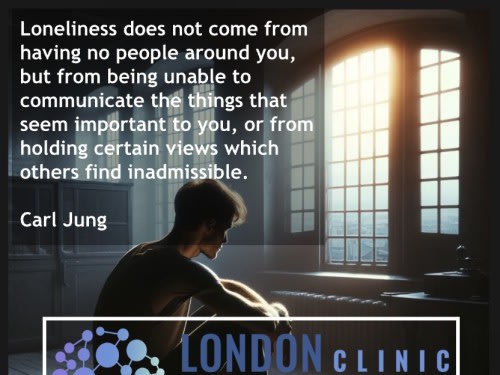Understanding Loneliness

posted 20th February 2024

Understanding Loneliness
In today's fast-paced world, where connections are often measured by digital interactions, the profound issue of loneliness has emerged as a silent epidemic affecting millions. It's a unique form of pain, distinct in its ability to strike not only when one is physically alone but also when surrounded by others. This article delves into the psychological underpinnings of loneliness, its potential to lead to serious mental health issues, and the role of psychologists in addressing this growing concern.
The Paradox of Loneliness
Loneliness is a complex emotional state characterized by a perceived lack of meaningful social connections. It's essential to distinguish between being alone—a physical state—and feeling lonely, an emotional experience. People can feel lonely in a crowd, disconnected from those around them, or when they are by themselves, craving human interaction. This disconnection can stem from various factors, including significant life changes, social anxiety, or the fast-paced nature of modern life, which often prioritizes online interactions over face-to-face connections.
The Psychological Impact
The implications of prolonged loneliness are profound, with research suggesting a strong correlation between loneliness and mental health disorders such as depression, anxiety, and increased stress levels. For instance, a study published in the Journal of Psychology highlights how chronic loneliness can lead to depression by altering brain function, leading to increased sensitivity to social threats and decreased participation in social activities.
Isolation and withdrawal from society further exacerbate this condition, creating a vicious cycle where the lonelier one feels, the more one isolates themselves, fearing rejection or further disappointment. This isolation can manifest in physical symptoms as well, including disrupted sleep patterns, increased blood pressure, and a weakened immune system.
Feelings of anger and frustration often accompany loneliness, stemming from the discrepancy between desired and actual social connections. These feelings can result in a negative outlook towards social interactions, further hindering the individual's ability to form meaningful relationships.
How Psychologists Can Help
Psychologists play a crucial role in addressing loneliness and its associated mental health issues. Through cognitive-behavioral therapy (CBT), psychologists can help individuals identify and challenge negative thought patterns related to loneliness, fostering a more positive outlook towards social interactions.
Mindfulness and stress reduction techniques are also employed to help individuals manage the anxiety that often accompanies efforts to connect with others. By focusing on the present and learning to regulate emotions, individuals can approach social situations with less apprehension.
Group therapy provides a dual benefit for those struggling with loneliness, offering a space to connect with others facing similar challenges while also learning and practicing social skills in a supportive environment.
Moreover, psychologists often work on enhancing an individual's social skills, providing strategies for initiating conversations, building friendships, and maintaining relationships. These skills empower individuals to seek out and nurture meaningful connections.
The Importance of Seeking Help Early
Recognising and addressing feelings of loneliness early on is crucial for preventing the onset of more severe mental health issues. Early intervention can help individuals understand the root causes of their loneliness, develop coping strategies, and gradually rebuild their social networks.
Seeking help is a sign of strength and the first step towards reclaiming one's mental health. It's important to remember that loneliness is a common human experience and that support is available.
In an age where connectivity is often taken for granted, the true essence of connection—feeling understood and valued by others—remains elusive for many. Psychologists offer a beacon of hope for those navigating the challenging waters of loneliness, providing the tools and support needed to forge meaningful connections and enhance overall well-being. If you or someone you know is struggling with loneliness, reaching out to a professional psychologist can be a transformative step towards a more connected and fulfilling life.



